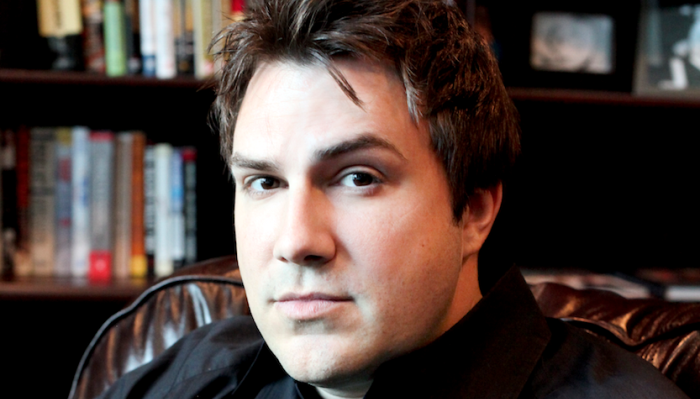As leading professionals collaborate to create innovative techniques to battle against the negative effects of the current Coronavirus pandemic, many forward-thinking pioneers are considering the power of interconnected technology. As advances in technology, communication, and real-time connectivity have positively impacted the medical field historically, pioneers in the Internet of Things realm are exploring the ways in which interconnected IoT devices could play a pivotal role in the immediate fight against COVID-19, as well as the long-term public health field.
For philanthropist, investor, and thought leader Jason Hope, the promise of integrating IoT into modern global healthcare signifies an exciting time for the industry. Hope, who lends a renowned perspective in the IoT movement, has recently provided insights regarding the role of technology in the fight against the pandemic. As the novel Coronavirus continues to impact the lives of citizens across the globe, interconnectivity can aid medical professionals in various aspects of care, epidemiology, preventative measures, and the development of an actionable plan.

According to Hope, the ability to implement IoT, artificial intelligence, and Geographic Information Systems can assist Epidemiologists with the overwhelming tasks of patient tracking, understanding patterns of spread, and navigating the impact of spread. By providing universal data that can be tracked cohesively across global systems, Epidemiologists can garner meaningful data that can be rendered as much more usable than the fragmented data available to date. While most countries scramble to utilize their own bespoke systems to create data, this data may not translate appropriately with the systems utilized by neighboring countries, rendering both sets completely independent of each other. In the fight against a global pandemic, this creates a loss of potentially life-saving information. Thus, by creating universal systems through the implementation of the Internet Of Things, professionals can be armed with the most useful data sets.
Many examples of boundary-pushing IoT devices being used in the fight against COVID-19 are already in existence across the world. Hope notes that several hospitals in China are currently utilizing interconnected thermometers that provide ongoing temperature monitoring for COVID-19 patients. This real-time monitoring not only provides ample data that can be analyzed by researchers who want to understand the temperature patterns of patients, but it also reduces the risk for hospital staff by minimizing interaction. According to Hope, this method of remote monitoring could be useful for first responders within the current pandemic, as well as within any future medical crises.
Leveraging the popularity of “smartwatches”, an Italian company has developed interconnected smart bands that can monitor a variety of bodily parameters, including wearers’ temperatures. Releasing radio signals to document wearer location, the smart bands are created to emit a vibration when in close proximity to another smart band, championing safe social distancing. Hope likens this to a gentle reminder, like a calendar reminder via notification, to remain respectful of social distancing regulations. A large prevalence of such devices, he surmises, could help to create a system of real-time awareness, respect, and implementation of rules that could have positive effects on overall social distancing. While this proactive measure could have positive impacts, other tracking measures can be used to ensure appropriate compliance with government mandates. In Hong Kong, for example, electronic tracking wristbands have been utilized as a method of ensuring that residents who have returned from a trip abroad have adhered to mandatory self-quarantine schedules. These bracelets have alerted local authorities when distances have been broached, leveraging IoT technology to ease the burden of public patrolling.
In the ongoing battle to maintain public safety and wellness within hospital settings, IoT has been implemented via smart buttons showing up in hospitals across Vancouver. When pressed, these buttons signal alerts to maintenance staff, advising of the need to care for a public health maintenance concern in a particular area of the hospital. According to Hope, these technologies can impart efficiencies within large operations, and maximize response times within crucial situations. Connected to LTE networks, these buttons can potentially revolutionize maintenance operations without the need for bulky infrastructure.
With examples of IoT based technologies already implemented within the fight against the COVID-19 pandemic, this forward-thinking tech can help frontline responders, researchers, and other personnel on the search for meaningful ways to combat the spread of Coronavirus. Hope touts the implementation of this technology within various applications, including personal tracking, transportation monitoring, critical asset monitoring, and digital healthcare monitoring. While all of these bespoke niches could utilize IoT in different capacities, the main asset gained would come from the rich and valuable data sets collected remotely. These data sets could provide unparalleled information regarding human behavior, transportation patterns, symptomatology, and adherence to self-isolation standards, all without requiring physical manpower.
As bold and innovative technologies spearhead change, the fight against the novel Coronavirus can be impacted by the implementation of breakthrough IoT products within the medical landscape. With the ability to connect countless individuals in real-time, and provide unprecedented universal data, these products have the propensity to alter the outcome of the pandemic.
About Jason Hope
As an entrepreneur, investor, philanthropist, and renowned thought leader in the realm of anti-aging, longevity, and the Internet of Things, Jason Hope leverages his previous experiences to create systemic change within those fields. After receiving a master’s degree in Finance, Hope’s foray into the workforce came via the development of a successful mobile communications company. Since then, the successful entrepreneur has invested in various startups and champions the small business space. Mentoring students, and providing an outlet for budding business leaders, Hope leans in to inspire future generations of forward-thinkers.

Connect with Jason Hope
Medium| Twitter | Facebook| LinkedIn